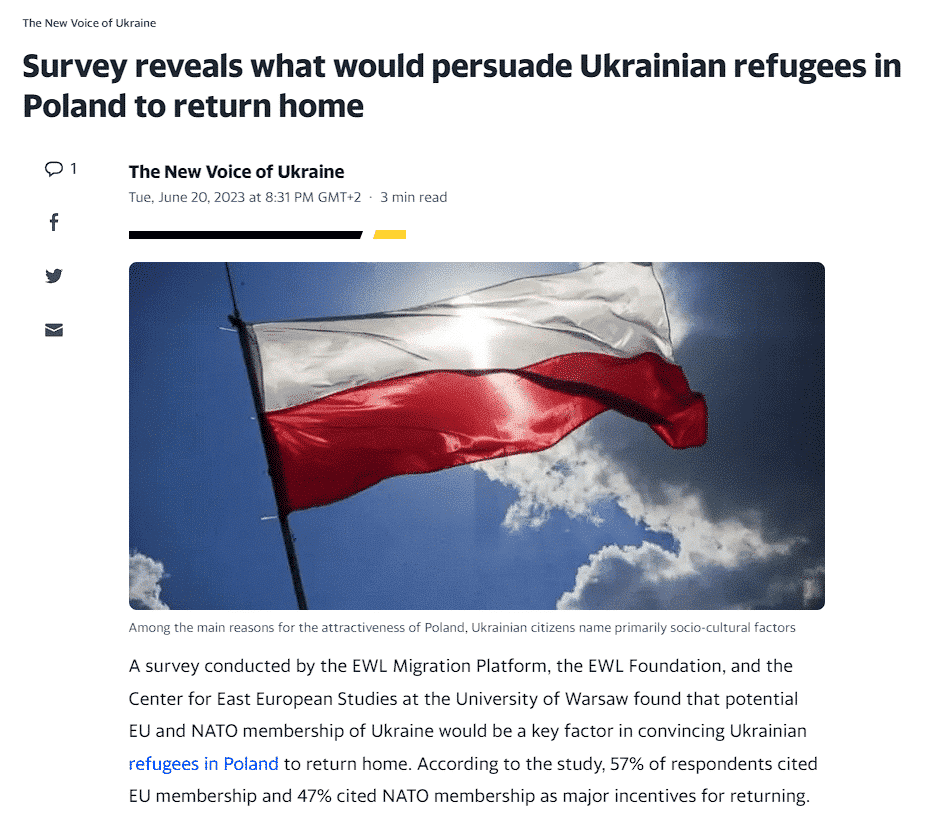A survey conducted by the EWL Migration Platform, the EWL Foundation, and the Center for East European Studies at the University of Warsaw found that potential EU and NATO membership of Ukraine would be a key factor in convincing Ukrainian refugees in Poland to return home. According to the study, 57% of respondents cited EU membership and 47% cited NATO membership as major incentives for returning.
Higher wages and improved working conditions, a consideration for 54% of respondents, were noted as being more significant for labor migrants, or those who left for Poland before Russia’s full-scale aggression, than for war refugees, with 57% versus 48% citing this factor.
“For a majority of pre-war migrants from Ukraine, better earnings and a stable life were the main motivations for moving to Poland,” said Maria Kuzenko, head of Legalization at EWL.
“In contrast, war refugees compelled to come to Poland. Many say they had a satisfactory life in Ukraine and had no plans to emigrate.”
For war refugees, the possibility of reuniting with family members who remained in Ukraine is a primary motivation for returning home, cited by 57% of Ukrainians who fled to Poland because of the full-scale Russian invasion. Overall, 48% of Ukrainians in Poland see family reunification as a reason to return home.
One in five Ukrainians in Poland said that state assistance in rebuilding and reclaiming their homes would encourage them to return. Other motivating factors include the implementation of reforms in Ukraine in healthcare, education, and the judiciary, and the easing of regulations on starting businesses in Ukraine – a concern for 16% of respondents.
Respondents were also asked what encourages them to stay in Poland for longer periods of time. Primary reasons for staying included socio-cultural factors such as having friends and acquaintances in Poland (40%), a friendly attitude from Poles (37%), cultural similarities (34%), and language similarities (28%).
Economic factors like job opportunities (27%) and simple procedures for legal stay and employment in Poland (22%) also play a part.
Primary obstacles to staying in Poland include concern for relatives in Ukraine (41%), financial difficulties (27%), and problems finding work (24%). Lack of Polish language skills could lead 25% of war refugees and 10% of pre-war migrants deciding to leave Poland.
The survey found that although the majority of working-age asylum seekers have found employment in Poland (78%), almost two-thirds (62%) plan to return to Ukraine in the near future. Among those, one in four (24%) plan to return before the end of the war.




